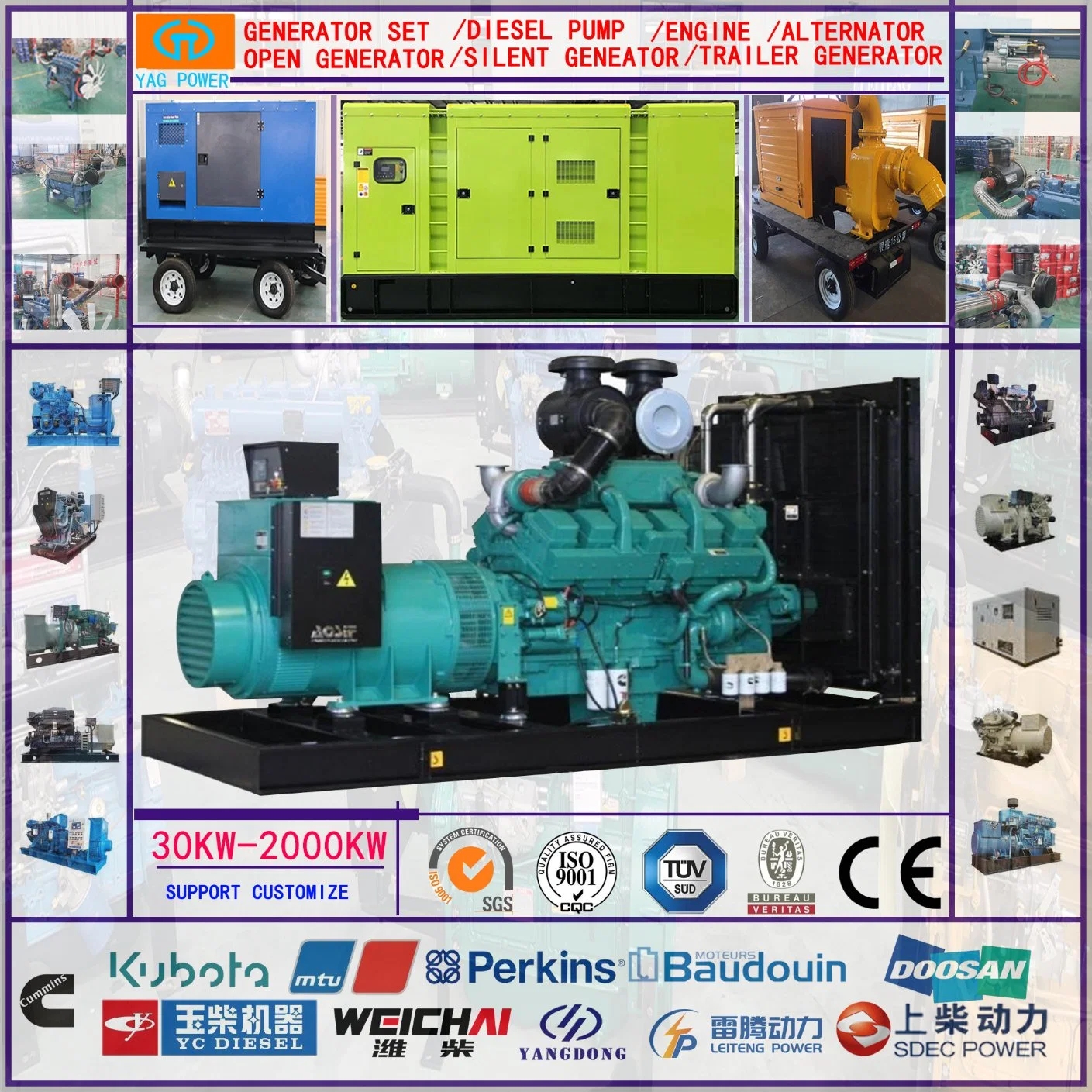Introduction
The efficient operation of factories and industrial facilities relies heavily on a stable and reliable power supply. In the event of a power outage or disruption, production processes can come to a halt, resulting in significant financial losses and delays. To mitigate such risks, many industrial facilities rely on diesel generators to provide backup power during emergencies. These diesel generators play a crucial role in ensuring that critical systems and equipment continue to function seamlessly, even in the absence of grid power.
One critical phase where diesel generators play a pivotal role is during factory acceptance testing (FAT). Factory acceptance testing is a rigorous process that verifies the functionality and performance of newly installed or upgraded equipment before it is commissioned for full-scale operation. The testing process involves subjecting the equipment to various simulated operational conditions to ensure that it meets the specified requirements and standards. In this article, we will explore the significance of diesel generators in factory acceptance testing and how they contribute to the overall reliability and success of the testing process.
Importance of Diesel Generators in Factory Acceptance Testing
1. Ensuring Uninterrupted Power Supply
One of the primary reasons why diesel generators are essential for factory acceptance testing is their ability to provide a reliable source of backup power. During the testing process, it is crucial to maintain a continuous and stable power supply to the equipment under evaluation. Any power interruption or fluctuation could disrupt the testing procedures and compromise the accuracy of the results.
Diesel generators are designed to kick in automatically in the event of a power outage, ensuring that critical systems remain operational without any interruption. This seamless transition to backup power helps to maintain the continuity of the testing process and prevents any data loss or equipment damage that may result from sudden power failure.

2. Supporting Heavy Electrical Loads
Factory acceptance testing often involves subjecting equipment to heavy electrical loads to assess its performance under various operating conditions. These loads can place a significant strain on the power supply infrastructure, requiring a robust and reliable source of electricity to sustain the testing process.
Diesel generators are capable of supporting heavy electrical loads and can provide the necessary power output to meet the demands of the testing equipment. Whether testing large motors, pumps, or other industrial machinery, diesel generators offer a consistent and stable power supply that ensures the accurate evaluation of the equipment's performance.
3. Flexibility and Mobility
Another key advantage of diesel generators in factory acceptance testing is their portability and ease of deployment. Unlike fixed power sources, diesel generators can be easily transported to different locations within the facility to support testing activities across various areas.
This flexibility allows testing teams to set up temporary testing stations wherever needed, without the constraints of fixed power infrastructure. Whether conducting tests in different production areas or moving equipment outdoors for specific evaluations, diesel generators offer the mobility and versatility required to adapt to changing testing requirements.
4. Redundancy and Reliability
In factory acceptance testing, redundancy is crucial to ensure that testing activities can continue uninterrupted in the event of equipment failure or power supply issues. Diesel generators provide an additional layer of redundancy to the existing power infrastructure, offering a failsafe mechanism to prevent any disruptions to the testing process.
By having a backup power source in the form of diesel generators, testing teams can mitigate the risks associated with unexpected power outages or equipment malfunctions. This redundancy enhances the overall reliability of the testing process and instills confidence in the accuracy and validity of the test results.
5. 150kw diesel generator for disaster relief
While diesel generators are known for their robustness and reliability, they also come with certain environmental considerations that need to be addressed during factory acceptance testing. Diesel generators emit exhaust gases and noise during operation, which can affect the indoor air quality and create a noisy testing environment.
To mitigate these environmental impacts, it is essential to properly ventilate the testing area and implement soundproofing measures to reduce noise levels. Additionally, ensuring that the diesel generators are well-maintained and comply with emission standards can help minimize the environmental footprint of the testing process.
Conclusion
In conclusion, diesel generators play a vital role in factory acceptance testing by providing a reliable and robust source of backup power. Their ability to support heavy electrical loads, offer flexibility and mobility, ensure redundancy, and address environmental considerations makes them indispensable for ensuring the success and accuracy of the testing process.
By incorporating diesel generators into the testing infrastructure, industrial facilities can enhance the reliability and efficiency of their factory acceptance testing procedures. As technology continues to advance and testing requirements become more stringent, the role of diesel generators in supporting critical testing activities will only grow in importance.
